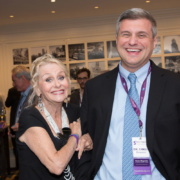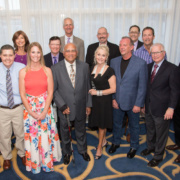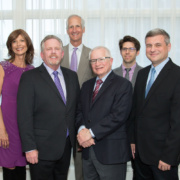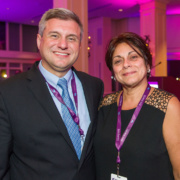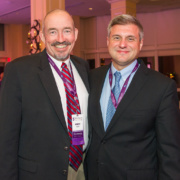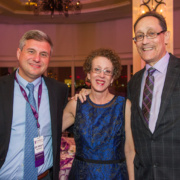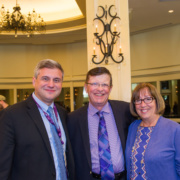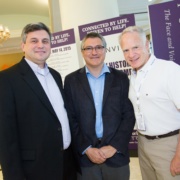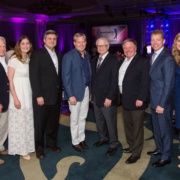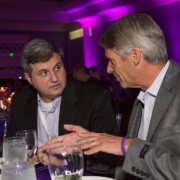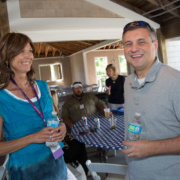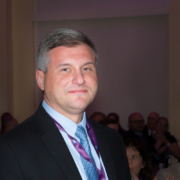Dr. Erkut Borazanci: “Striving To Knockout Pancreatic Cancer”
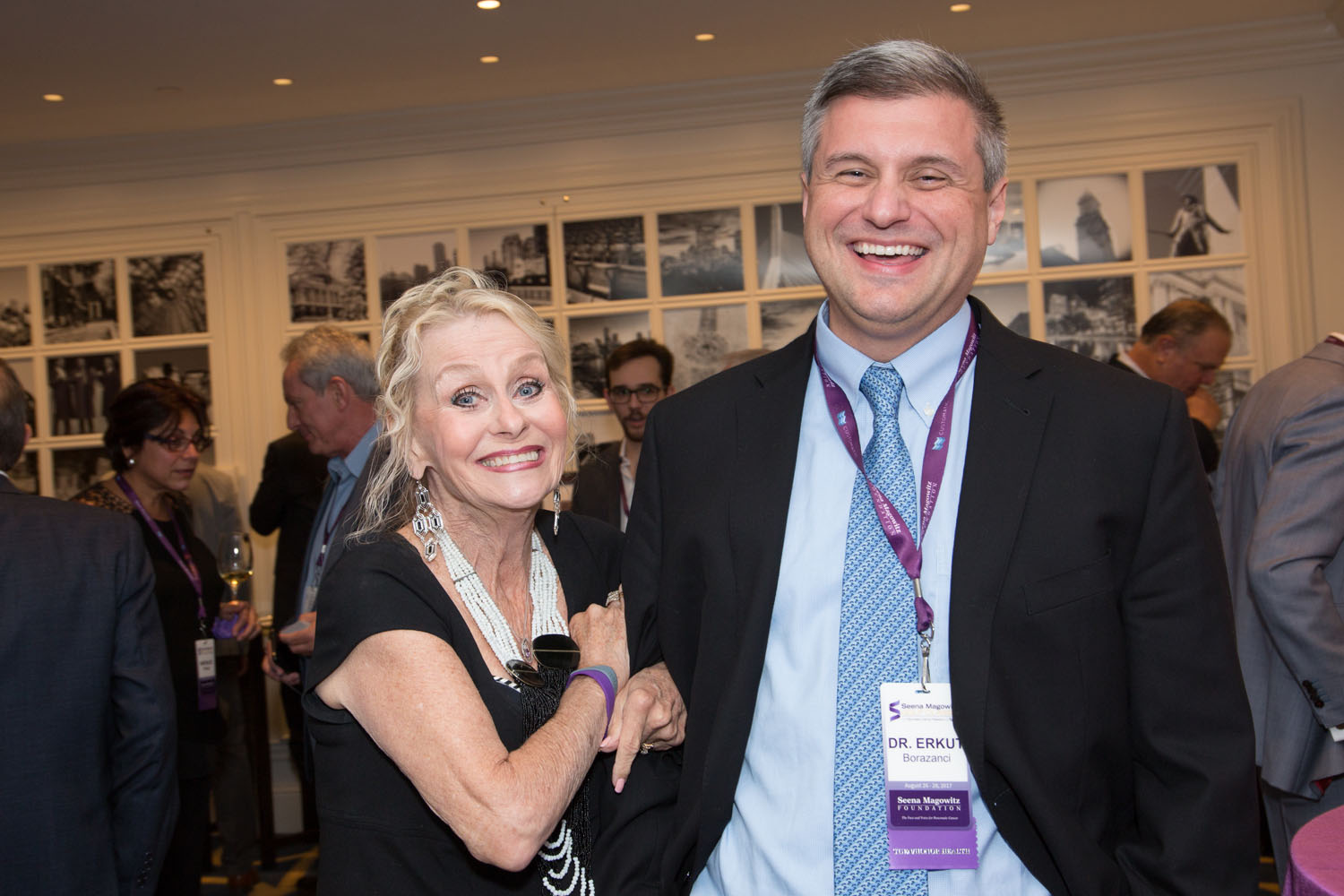
- Dr. Erkut Borazanci, Dr. Von Hoff, Becky Young, Howard Young
- Dr. Erkut Borazanci and Ray Bojanowski
Written By Debra Gelbart
January 9, 2018
On The Front Lines. Erkut Borazanci, M.D. is a leading pancreatic cancer researcher, working at the Virginia G. Piper Cancer Center at HonorHealth Research Institute and with the Translational Genomic Research Institute (TGen) in Phoenix to advance more and more promising treatments for the nation’s third deadliest cancer.
Growing up first in Brooklyn and then in Baton Rouge, Louisiana as the son of Turkish immigrants, Dr. Borazanci first thought about cancer research as a profession after his future brother-in-law died at a very young age of testicular cancer. “Watching a strong, healthy guy wither away into next to nothing was heartbreaking,” he said, “and I wanted to know how and why this could happen and what can be done about it.” He and his future brother-in-law shared a birthday and Dr. Borazanci took that as a sign that he was destined for cancer research.
He completed a master’s degree in molecular biology at Louisiana State University and decided to go to medical school at LSU Health in Shreveport instead of getting a Ph.D. “I knew I could do even more advanced research as a medical doctor,” he said.
But it wasn’t until he was a medical resident doing a rotation on the oncology service that he realized he wanted to dedicate his career to finding a cure specifically for pancreatic cancer.
“We diagnosed a young woman in her mid-30s with pancreatic cancer,” he explained, “after she presented with severe abdominal pain and weight loss.” Shortly thereafter, he said, she died, and he decided he was meant to focus on research that looked for answers for the cancer “that has the poorest survival of all solid cancers.”
Stunning Improvements in Less Than 10 Years
That was nine years ago. Today, pancreatic cancer patients are showing remarkable response in clinical trials that Dr. Borazanci developed, some living years longer than the vast majority of pancreatic cancer patients did less than a decade ago. “I am reminded on a weekly basis about the difficulties with treating advanced cancer,” said Borazanci, who is also the medical director of the Molecular Medicine Institute at HonorHealth and a clinical assistant professor at the Translational Genomics Research Institute (TGen) and University of Arizona. “But I find hope in those individuals that do well. The individuals we take care of teach us every day and it is essential to listen and to learn more.”
Dr. Borazanci came to HonorHealth at the end of 2012. “I heard Dr. Daniel Von Hoff (the world’s foremost authority on pancreatic cancer research who also is based at HonorHealth) give a talk in June of that year at the American Association of Cancer Research meeting, and I was floored,” he said. “I knew at that moment I had to work with him.” Since coming to HonorHealth, it has become increasingly clear to Dr. Borazanci that he and Dr. Von Hoff think alike. “His understanding of biology is so impressive and unique,” Dr. Borazanci said. “He has melded the biology of pancreatic cancer with the clinical aspect and knows how to bring his discoveries to the people who need them the most.”
With inspiration from Dr. Von Hoff, Dr. Borazanci has opened an Early Detection Clinic where new protocols are in place for determining a person’s familial or genetic risk for developing pancreatic cancer and devising individualized surveillance programs.
“It is incredible to have Dr. Borazanci as a warrior on the front lines against pancreatic cancer,” Dr. Von Hoff said. “He is an incredibly gifted clinician at the bedside and a caring man who urgently wants to make an impact against pancreatic cancer.” In fact, Dr. Von Hoff pointed out, Dr. Borazanci has new, innovative protocols open for patients with earlier and late stages of pancreatic cancer.
Pioneering Efforts Continue
Without continued insight into pancreatic cancer, he added, “we won’t be able to offer more innovative treatment options. I am thankful for the individuals who have given their time and lives to push the research into pancreatic cancer. It’s great that we have the mindset now that we expect people with this cancer to live longer and longer.”
Related Reading
Sandra DeMey-Forrest: Warrior
Phil Zeblisky: Warrior
HonorHealth Research Institute Pancreatic Cancer Clinical Trials
Return To Pancreatic Cancer News
Working Together in Pursuit of Prevention and Cure of Pancreatic Cancer


